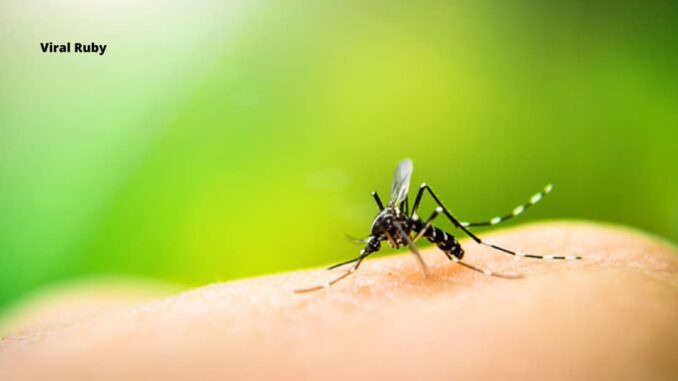
What Purpose Do Mosquitoes Serve in the Ecosystem?
Mosquitoes are a common nuisance for most people, but the question often arises – what are their purposes? What role do they play in the ecosystem, world, and earth? This article aims to shed light on the true purpose of mosquitoes. Read on to learn more about the role of mosquitoes and their importance in the ecosystem.
What purpose do mosquitoes serve?
There is no clear reason why mosquitoes evolved. Their evolution is unrelated to any benefit to other animals or to the world as a whole. Many parasites survive by leeching off of the host species, and mosquitoes are no different. In their own ecosystem, they play an important role in the food chain.
Mosquitoes provide food and pollinate many animals, including fish. They are also a food source for birds, bats, and amphibians. Even adult mosquitoes are eaten by animals like lizards and bats. But mosquitoes can also help humans in some ways. Scientists are currently investigating whether mosquito saliva can be used as a treatment for cardiovascular diseases.
For More: How Much Health Does Predator Have in Fortnite?
In some parts of the world, mosquitoes are the most abundant insect biomass. Their larvae are the primary food source for many other animals, including bees, which is especially important because bees are in danger. Mosquitoes also play an important role in pollinating plants. Their activity also decreases the amount of human activity in some ecosystems. In wetlands and forests, mosquitoes make it difficult for humans to stay in those areas for extended periods. But there are many people who owe their existence to mosquitoes.
What purpose do mosquitoes serve in the ecosystem?
Mosquitoes serve a critical ecological role in our world. They are very useful to the ecosystem, and they are also a major source of disease. Mosquitoes transmit a number of diseases to humans, including West Nile Virus, yellow fever, dengue fever, filariasis, and Zika. They also carry disease to other animals, such as dogs and horses.
Mosquitoes are important to the ecosystem because they provide food for many animals. Birds, bats, and fish all feed on mosquito larvae, and dragonflies, fish, and amphibians eat adult mosquitoes. In addition, bats and birds pluck mosquitoes from the air. And, of course, mosquitoes also serve as pollinators.
Quick Read! Which State Correctly Matches The Animal That Appears On Its Flag?
Mosquitoes play an important role in pollinating plants, and there are over 300 species of them worldwide. While bees and moths are the largest pollinators of plants in warm climates, mosquitoes are the dominant pollinators in colder countries.
What purpose do mosquitoes serve in the world?
Mosquitoes are a common nuisance in our world, but they serve a useful purpose in many ecosystems. Male mosquitoes pollinate flowers and other plants and feed on nectar. They also serve as a food source for many animals. As such, they fit into ecosystems’ food chains, or “food web.”
Mosquitoes also feed fish. They’re an important food source for fish larvae. In addition, adult mosquitoes provide food for birds, bats, spiders, and small mammals. Mosquitoes may even be useful for human health. Ecologists are looking into using the saliva of some species to cure cardiovascular disease and other illnesses.
Nurse Vs Clients! How Should The Nurse Respond When The Client Requests Information About Meditation?
Scientists have been studying mosquitoes for more than two decades. They’re known to carry malaria, which infects 247 million people worldwide each year. The disease is fatal for nearly a million people each year. While mosquitoes are responsible for a number of other problems, their primary function is to transmit disease. In addition, mosquitoes are known to form thick swarms that can choke caribou in the Arctic.
What purpose do mosquitoes serve on earth?
There are a few hundred species of mosquito on Earth, but not all of them bite humans. These insects serve many important ecosystem functions and are found in almost every continent. Mosquitoes have been on earth for at least 100 million years, and eliminating them from the planet could lead to a lack of pollinators and predators. Because of this, there are intensive efforts underway to eradicate the world’s mosquito populations.
Read 4 Exposure! Blue Whale Bitten in Half 2022
Despite the negative impact of mosquitoes on humans, their presence is necessary for the survival of countless other animals. Their feeding and breeding activities provide food for other species and aid in pollination. If these organisms were eliminated, the world would lose a lot of food, and a multitude of animals would suffer. Insect eaters would need to shift their feeding habits and find other sources of food.
Mosquitoes’ other function is to pollinate crops. However, only certain species feed on blood. Female mosquitoes are blood-suckers and don’t contribute to pollination. Fortunately, other species of insects can fill this role.
What would happen if mosquitoes went extinct?
In the Arctic, mosquitoes lay eggs in warm temperatures. In less than a month, the eggs hatch and are ready to bite humans. While mosquitoes are a primary food source for many insect eaters, they also have a major impact on the environment.
See Details: Curis Functional Health LLC & Gainesville FL
The extinction of mosquitoes would have a domino effect on the ecosystem. The population of many animals would decrease, and the food chain would adjust. Animals that depend on mosquitoes for food would be left without enough food to survive. In addition, thousands of plant species would no longer have pollinators. This would have a negative effect on the health and longevity of many plants.
Scientists have been trying to eradicate mosquitoes for years. To achieve this, they have made specific changes in mosquitoes’ genetic code. The changes affect the production of sperm and eggs, limiting the harmful species’ ability to build colonies.
Can we live without mosquitoes?
The mosquito is not a keystone species, so if it disappears, other insects would likely step in. This would cause a ripple effect throughout the ecosystem. While there is no definitive answer to the question, there are a few steps you can take to reduce your exposure to mosquitoes.
Are You Searching: Finding the Best Health Insurance in Battle Creek Michigan
Mosquitoes spread diseases and can be a nuisance. This pest is responsible for up to 80 million deaths worldwide each year. In the 18th and 19th centuries, this insect spread out from Africa to Asia, and even during World War II. Today, there are between 80 million and 100 million managed beehives.
While mosquitoes can be annoying, they are important to the ecosystem. They pollinate plants and help them reproduce. In addition, female mosquitoes lay their eggs in birdbaths, flowerpots, and puddles. However, killing one mosquito will increase the number of breeding mosquitoes around you, which makes you a more likely target for other mosquitoes.
Do mosquitoes have any benefits?
Mosquitoes are an important part of the ecosystem and are responsible for several important functions. They feed on the blood of mammals, reptiles, birds, livestock, and even frogs. Their larvae live in stagnant water and prefer to feed close to humans. Their bites alter our immune system, which can help us to fight off disease and infection.
See Also: Is Good For Health Bad For Education?
The larvae of mosquitoes serve as an important food source for other animals. Certain fishes, like mosquitofish, feed on these larvae. Their larvae also provide food for turtles, dragonflies, and other animals. In addition, birds and bats feed on adult mosquitoes, plucking them from the air to feed their young.
Mosquitoes are also important to the ecosystem, affecting plants and pollinators. They influence the migration routes of woodland caribou. These creatures need to move higher in the summer to find food, but mosquitoes make them avoid the best feeding areas. This means the caribou spend less time feeding and may not build up enough fat for the winter. This could alter the historical migration paths of caribou.
Are mosquitoes useful to humans?
Many people believe that mosquitoes are only useful to humans, but this is simply not the case. Mosquitoes are important to the ecosystem because they provide food and pollinate. Mosquitoes also serve as pollinators and provide habitat for many different species. Currently, there are over 3,500 species of mosquitoes in the world, but not all of them bite humans. Many species feed on other animals such as birds and bats.
Read More: Are Broiler Eggs Good For Your Health Or Not?
While many people would like to get rid of mosquitoes, their bites are beneficial to many animals. For example, mosquitoes feed on many different kinds of animals and birds, including humans. Mosquitoes also need water to breed and reproduce. Insecticide spraying and the removal of standing water are two popular methods to control mosquito populations. But so far, these efforts aren’t having much of an effect. Moreover, global warming may actually boost the population of mosquitoes in some areas.
Although there is some controversy surrounding whether mosquitoes are useful for humans, it is important to understand their role in the ecosystem. In some areas, mosquitoes comprise most of the insect biomass. They provide a vital food source for other animals, like humans, and pollinate flowers. This is particularly important in places where bees are threatened. Mosquitoes also reduce human activity, making them an integral part of ecosystems. They keep humans from staying in forests or wetlands for too long. They do important work, and many people owe them.

Leave a Reply